Roatel is an innovative provider of overnight accommodation solutions specifically designed for travelers along European highways. The company focuses on offering convenient, cost-effective, and comfortable lodging options by converting shipping containers into micro-hotels strategically placed at key locations such as truck stops and near major highways. These micro-hotels are divided into four single rooms, each equipped with modern amenities including showers, toilets, air conditioning, satellite TV, and Wi-Fi.
Interview with Carl Zickenheiner, Finance & Business Development Analyst at Roatel GmbH.
Easy Engineering: A brief description of the company and its activities:
Carl Zickenheiner: Roatel serves a diverse clientele, including business travelers, private travelers, truck drivers, and tradespeople, addressing their specific needs with features like secure parking and flexible booking options. The company’s core activities include establishing and managing these micro-hotels to offer a comfortable and convenient stay for travelers. Roatel operates the my.roatel.de platform, which automates the booking process from reservation to digital check-in, providing a seamless customer experience.
To facilitate rapid and capital-efficient growth, Roatel is expanding its network through a franchise model. This strategy allows for quick scalability while requiring less capital. The company also emphasizes sustainable practices by utilizing recycled materials and renewable energy sources in the construction and operation of its facilities. Strategic partnerships with truck stops, gas station networks, and logistics centers ensure the optimal placement of micro-hotels and a broad market presence.
By combining innovative accommodation solutions with a robust digital platform and a strategic franchise model, Roatel GmbH aims to meet the growing demand for convenient and affordable lodging for highway travelers across Europe.
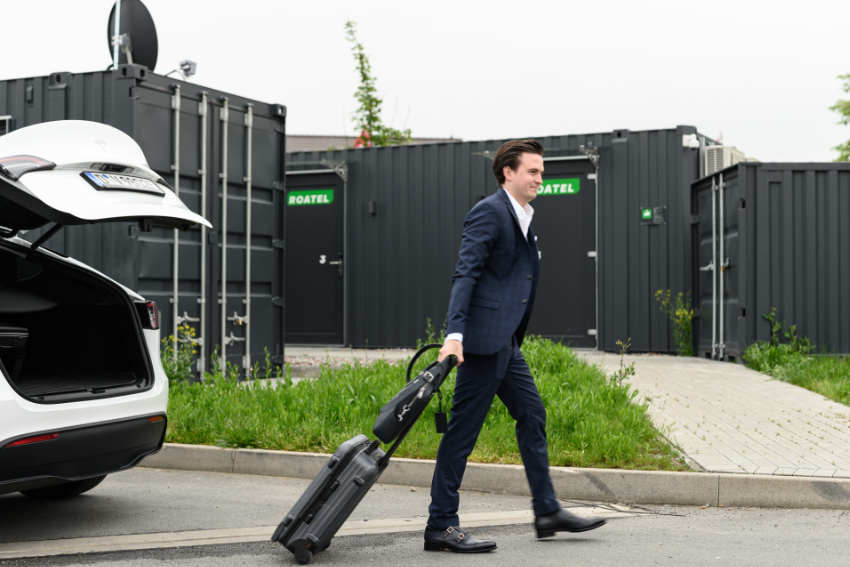
E.E: What are the main areas of activity of the company?
C.Z: Design and production: Roatel designs and manufactures micro-hotels by converting 45-foot shipping containers into 4 comfortable hotel rooms. These units are designed to be quickly assembled and installed strategically, particularly near motorways and transport hubs.
Installation and operation: The company is responsible for the installation and ongoing operation of the Roatels. This includes ensuring that the micro-hotels are properly maintained and operated to provide a high standard of accommodation for guests.
Hotel business: Roatel runs its own hotel brand by directly managing and operating the micro-hotels. This includes the day-to-day management of hotel operations, guest relations, and ensuring a high quality of service at each Roatel.
Booking Platform Management: Roatel has developed a proprietary booking platform, my.roatel.com, which enables room reservations, payment processing, digital check-ins, digital room keys, and other guest services. In addition, Roatel has another platform for internal management that includes control, benchmarking, reservation management, analytics, and other operational functions.
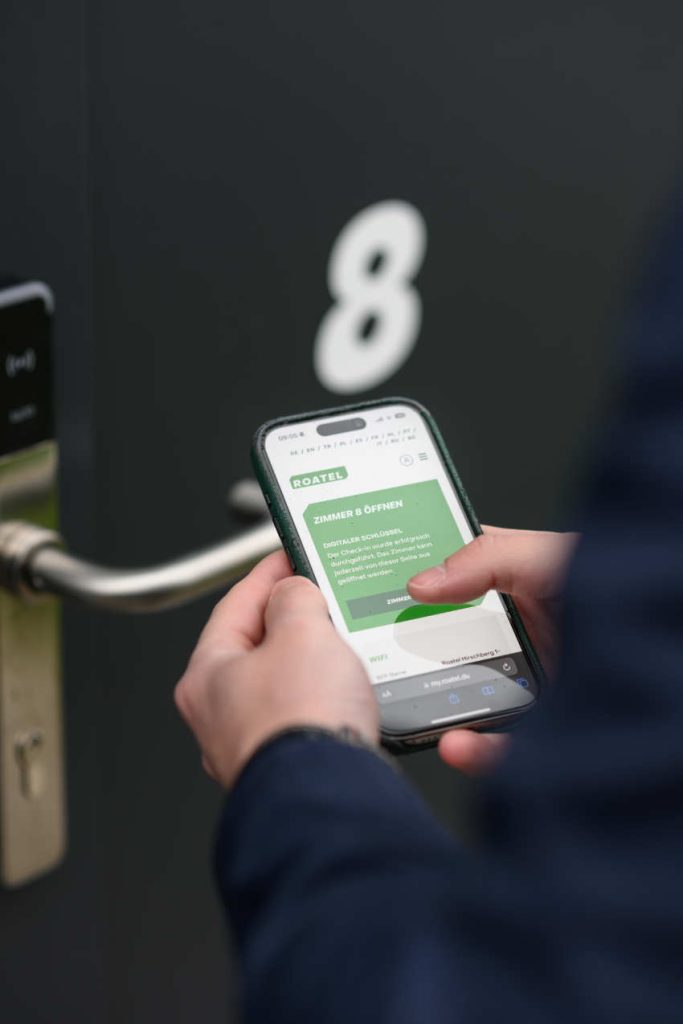
Franchising and expansion: In addition to operating its properties, Roatel is expanding through franchise agreements. This allows third parties to operate Roatels on their properties while using the Roatel platform and brand. This allows for faster growth and expansion into other regions.
Strategic location selection: Roatel specifically selects locations in motorway service areas and underserved areas to fill a gap in accommodation infrastructure and provide travelers with convenient overnight accommodation.
Digital management: Roatels are booked and managed digitally through the web application my.roatel.com, allowing easy booking and payment.
E.E: What’s the news about new products/services?
C.Z: Roatel GmbH is currently in a critical growth phase. Over the past two years, the successful product development and market launch have been primarily funded through internal resources. Shareholders have contributed equity and convertible loans, and external capital has been secured. However, further growth depends on access to additional external capital.
In response, in addition to the traditional location partner model, the focus is now shifting more towards a franchise system. This approach requires less capital, allowing the rollout to continue.
The year 2024 is designated as a consolidation year, with reduced growth of the company-owned operations expected: six new Roatels are planned for 2024, four of which have already been set up. An additional eleven new Roatels are to be established by franchise partners, with the first contracts already signed.
Given these developments and the planned stock market placement, Roatel is now prioritizing the expansion of its franchise system. From 2025 onwards the company intends to expand its activities further, with plans for a gradual rollout into other European countries.
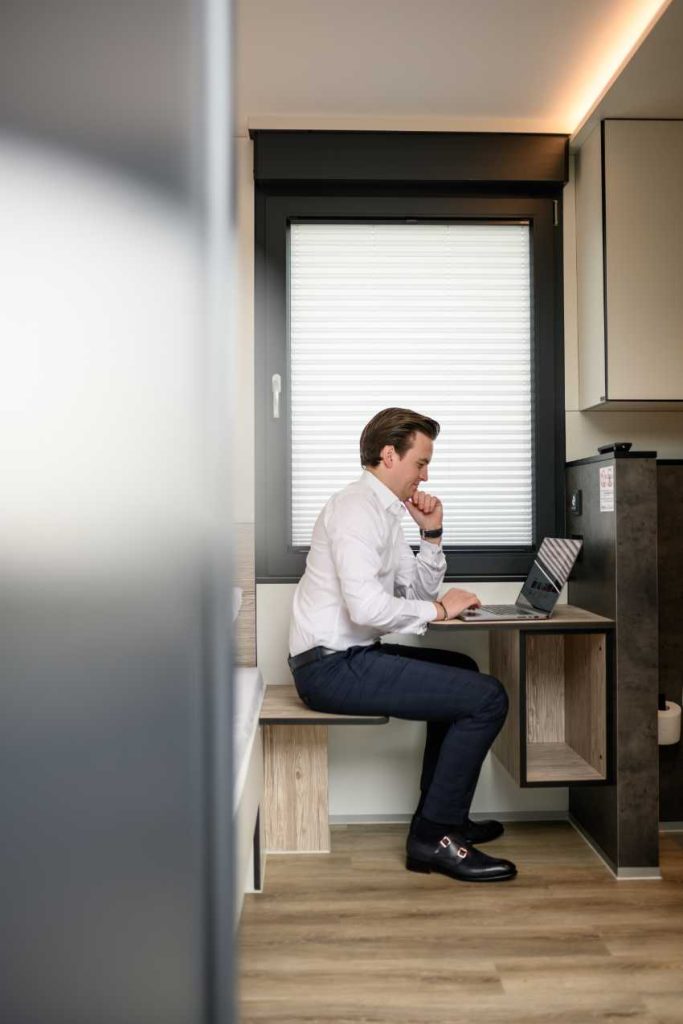
E.E: What are the ranges of products/services?
C.Z: Roatel offers an innovative solution for travelers and truck drivers in need of convenient and cost-effective overnight accommodations. Traditional hotel options are often not located near major highways, causing detours and longer travel times. Roatel addresses this issue with micro-hotels housed in specially converted shipping containers, strategically placed at locations like truck stops and near highways. Each container is divided into four comfortable single rooms, equipped with modern amenities such as showers, toilets, air conditioning, satellite TV, and Wi-Fi. This strategic placement and comprehensive facilities provide a quick, convenient, and affordable overnight alternative tailored to the needs of travelers.
Roatel’s business model is built on multiple revenue streams, creating a robust and scalable system. The primary source of income is the overnight fees, managed through an efficient online platform, my.roatel.com. This platform automates the entire booking process, from reservations to digital check-in, where customers receive a digital room key directly on their mobile devices. This minimizes administrative overhead and allows Roatel to charge fees for each transaction. Additionally, the platform markets and sells ancillary services, opening further revenue opportunities. The use of digital technologies not only enhances operational efficiency but also enables data-driven personalization, contributing to revenue growth.
In addition to its online platform, Roatel leverages established online travel portals such as Booking.com. These platforms significantly extend Roatel’s reach and increase visibility to a broader audience. By being present on these platforms, Roatel benefits from its large user base and advanced booking technologies. Customers can compare prices and read reviews before booking, which not only enhances customer satisfaction but also directly contributes to increased revenue.
Overall, Roatel offers a comprehensive solution to the problem of expensive and inconvenient overnight stays during travel through the strategic placement of micro-hotels, an efficient online booking system, and the use of multiple distribution channels. By combining comfortable accommodations with modern amenities and an accessible, efficient booking process, Roatel presents an attractive option for modern travelers.
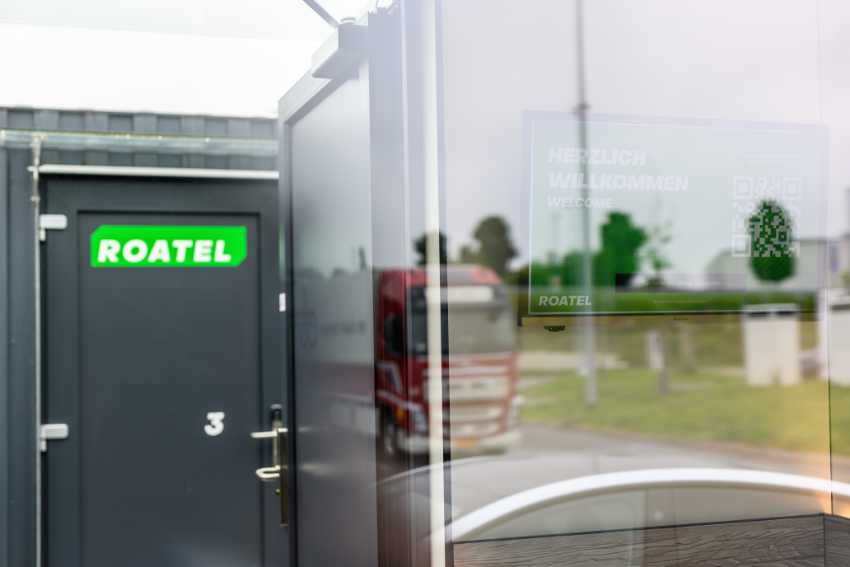
E.E: What is the state of the market where you are currently active?
C.Z: Roatel GmbH has established itself as an innovative provider of accommodation solutions specifically tailored to the needs of travelers along European highways. The company serves four main market segments: business travelers, private travelers, truck drivers, and tradespeople. Business travelers, who make up about 41% of the clientele, appreciate the functional amenities and central locations of Roatel lodgings. Private travelers, accounting for 39% of the clientele, prefer the comfort and proximity to tourist attractions. Truck drivers and tradespeople, together constituting 16% of the customers, require special amenities such as secure parking and flexible booking options.
The market potential for Roatel is significantly influenced by the EU Mobility Package, which mandates improved rest conditions for the more than 120,000 truck drivers traveling daily only in Germany. The demand is estimated at around 50,000 rooms to meet these requirements, highlighting the potential for a significant market share in this segment.
To effectively penetrate this market, Roatel employs a market entry strategy that leverages the franchise model. This approach aims to address the challenges of limited parking space and the requirements of the EU Mobility Package. Through partnerships with truck stops, gas station networks, and logistics centers, Roatel seeks to rapidly expand its network and ensure broad market presence. Centralized marketing via the Roatel app, integrated with specialized management software, supports this endeavor by providing efficient administration and booking functions.
In the competitive landscape, Roatel faces various players, including manufacturers of tiny houses and living containers. Other potential competitors include Tin Inn, WMM Hotels, and Serways (Tank & Rast), which are also developing innovative accommodation concepts within their respective fields. Roatel differentiates itself through its modular and flexible concept and its specific focus on the needs of travelers reliant on highway proximity, along with the use of advanced technologies for the management and booking of its facilities.
This comprehensive strategy aims to position Roatel not only as a practical and accessible provider but also as a pioneer in a specialized market segment redefined by the EU Mobility Package.
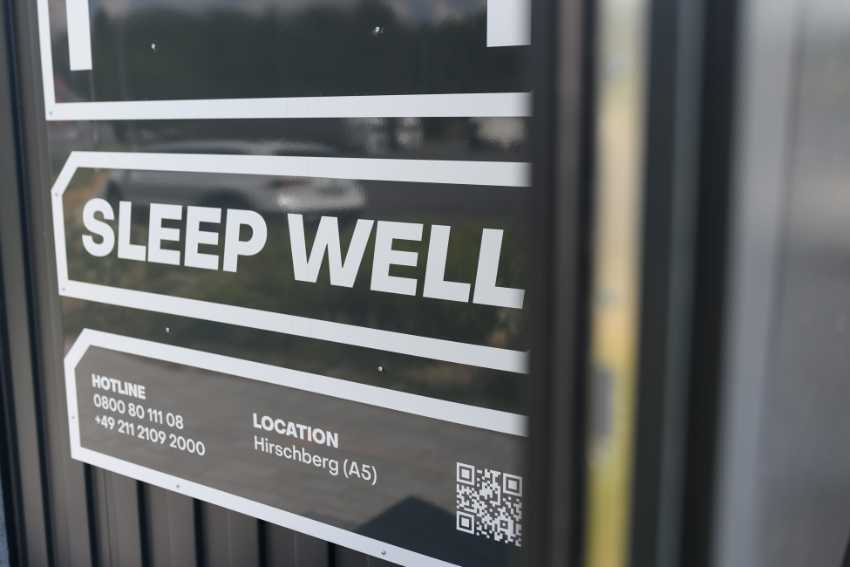
E.E: What can you tell us about market trends?
C.Z: Increased Demand for Truck Driver Accommodations: The implementation of the EU Mobility Package has significantly increased the demand for truck driver lodging solutions. This legislation mandates better rest conditions for the substantial number of truck drivers on European roads, particularly in Germany, where over 120,000 truck drivers travel daily. Roatel is poised to meet this demand by providing comfortable, conveniently located accommodations tailored to the needs of this demographic.
Modular and Mobile Solutions: There is a growing trend toward modular and mobile accommodations, which Roatel has effectively capitalized on. By using specially converted shipping containers, Roatel can quickly install and relocate its micro-hotels as needed. This flexibility allows Roatel to strategically place its units in high-demand areas, such as truck stops and near highways, ensuring accessibility and convenience for travelers.
Digitalization: The hospitality industry is increasingly relying on digital platforms for booking, payment, and access, a trend that Roatel has embraced fully. The my.roatel.de platform automates the entire booking process, from reservations to digital check-in, where customers receive a digital room key directly on their mobile devices. This digital-first approach not only enhances customer convenience but also streamlines operations, reducing administrative costs and improving efficiency.
Sustainability: Sustainability is becoming a crucial consideration in both construction and operations. Roatel is committed to sustainable practices, utilizing recycled materials and renewable energy sources in the construction and operation of its micro-hotels. This commitment to sustainability not only aligns with global trends but also appeals to eco-conscious travelers, enhancing Roatel’s market appeal.
By aligning its offerings with these key market trends, Roatel is well-positioned to cater to the evolving needs of modern travelers and truck drivers, while also supporting broader industry movements towards digitalization and sustainability.
E.E: What are the most innovative products/services marketed?
C.Z: Roatel’s most innovative offerings include:
- Modular Micro-Hotels: Easily installable units that provide high comfort with minimal infrastructure requirements.
- Integrated Booking Platform: A comprehensive system that simplifies booking, payment, and access processes for guests and operators.
- Sustainable Features: Use of recycled ocean containers, solar power, and other eco-friendly technologies.
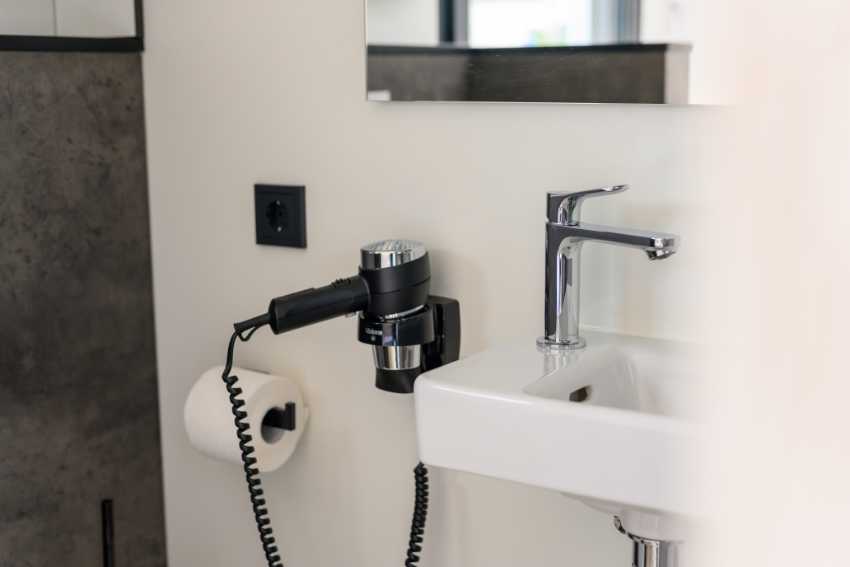
E.E: What estimations do you have for 2024?
C.Z: Roatel GmbH is currently in a crucial growth phase. Over the past two years, the successful product development and market launch have been financed primarily through internal resources. Shareholders have contributed equity, convertible loans, and debt capital. Future growth now depends on access to additional debt.
In response, in addition to the traditional location partner model, the focus is shifting to a franchise system. This approach requires less capital while allowing for the continuous roll-out of new locations.
The year 2024 will be one of consolidation, with only six new company-owned operations. In addition, eleven new Roatels are expected to be opened by franchise partners, the first of which has already been signed.
Given these developments and the planned share placement, Roatel is now prioritizing the expansion of its franchise system. The company will resume its expansion activities in 2025, including a gradual roll-out in other European countries.
Following the formation of Roatel Holding AG, the company is planning to raise additional capital for further operational expansion and growth initiatives.
In summary, these steps are designed to provide Roatel with the resources and structure necessary for long-term market success to finance its operations, franchising efforts, and European expansion. These measures are essential to create a stable and flexible financial base that will enable the company to meet future challenges and opportunities.
By the end of 2026, Roatel aims to open a total of 165 micro-hotels to significantly increase its presence in Germany. In Germany, the majority of the new properties will be developed using a franchise model with a planned ratio of 75:25. The franchisees will finance the containers themselves, including infrastructure and construction costs. The goal is to reach around 1,900 hotel rooms in Germany and abroad.
